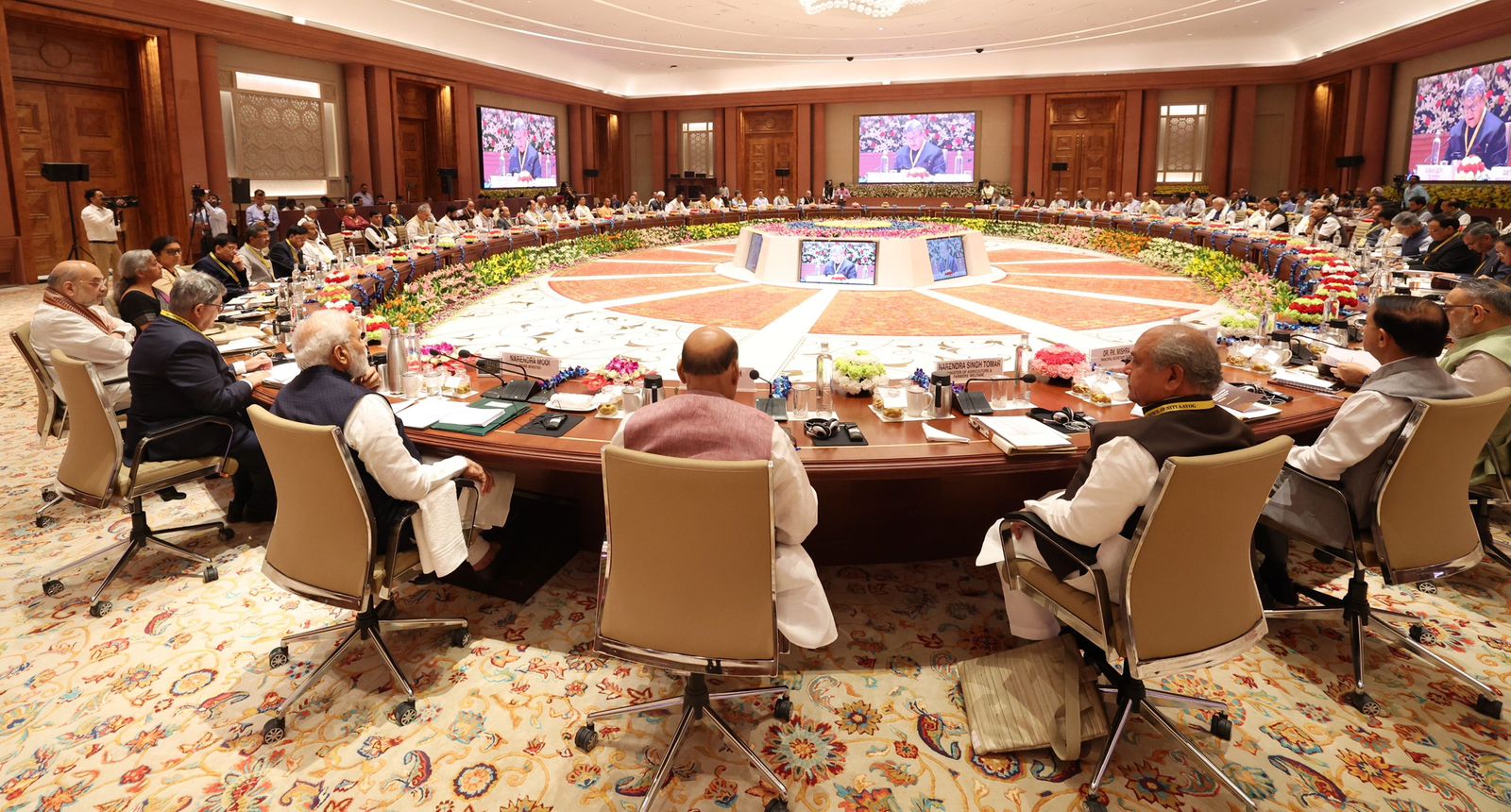New Delhi, May 27: Meghalaya Chief Minister Conrad K Sangma on Saturday presented the State’s aim of becoming a robust $10 billion economy by 2028 to the NITI Aayog, thereby contributing to India’s goal of achieving a $40 trillion economy by 2047.
CM Sangma made the presentation at the eighth meeting of the Governing Council of NITI Aayog, convened under the chairmanship of Prime Minister Narendra Modi, on Saturday at the G20 Summit venue at Pragati Maidan in New Delhi.
In this speech, CM Sangma said, “The realization of a vibrant and prosperous ‘Vikist Bharat’ by 2047 hinges upon the collaborative efforts of the State and the Centre. As we set our sights on India’s momentous goal of achieving a $40 trillion economy by 2047, Meghalaya stands committed to contribute its part and be an integral part of this extraordinary narrative. By the year 2028, Meghalaya aspires to emerge as a robust $10 billion economy. Our state has demonstrated commendable performance across various initiatives and schemes initiated by the Government of India. I want to reassure everyone present today that we shall tirelessly strive over the next five years to steer Meghalaya towards a path of progress and prosperity.”
He emphasized on the state’s identified growth engines to achieve its vision of a $10-billion economy. These engines include leveraging Meghalaya’s climatic resources, building growth centers along strategic corridors, transforming Shillong into an urban growth engine, and positioning the state as a high-value tourism destination. He further highlighted the potential of tourism to drive the state’s economy and shared plans to increase the tourism contribution from 4 percent to at least 10 percent of the state’s GSDP in the next five years.

Highlighting Meghalaya’s achievements, he informed that under the Jal Jeevan Mission (JJM), the state has made significant strides in providing tap connections to households. The number of households with tap connections has increased from 4,550 in 2019 to over 3 lakhs today. The Union government has allocated Rs 3,565 crores in 2023-24 to cover all 6.5 lakh households by the end of 2023-24. This demonstrates the state’s commitment to ensuring access to clean drinking water for its citizens.
The state has also witnessed notable advancements in the health sector. Maternal deaths have been reduced by 53% over the last two years, and the infant mortality rate has decreased to 29 per 1,000 live births in 2022. Initiatives such as Ayushman Bharat/MHIS have improved health-seeking behaviour and reduced out-of-pocket expenses. Technological interventions like the MOTHER program and drone delivery of medicines have addressed accessibility challenges, further enhancing healthcare services, he said.
CM Sangma further highlighted the state’s focus on youth engagement. He said Meghalaya aims to empower its youth in traditional domains such as handicrafts, arts, hand embroidery, tailoring, as well as emerging fields like solar panel installation, food processing, AI, and Robotics. Additionally, the state is implementing soft skills programs to enhance confidence and emotional capabilities, particularly relevant to tribal youth. Furthermore, Meghalaya is conducting the largest mass talent identification and physical performance improvement program in the country using digital technology to foster sports development, he said.
The NITI Aayog was also apprised about Meghalaya’s varied agri-climatic conditions have enabled the cultivation of high-value horticultural crops such as Lakadong Turmeric, Ginger, Pineapples, Oranges, and traditional fruits like Sohiong and Sohpi. Successful experiments with crops like Lavender, Saffron, and Buckwheat have displayed the state’s agricultural potential. “By creating value addition and marketing infrastructure, Meghalaya aims to double the income of its farmers. The state has already exported turmeric to Europe and the US and sent oranges to Abu Dhabi, opening international markets for its produce,” he said.
“Strategic growth centers along key projects in partnership with the World Bank have been identified to boost logistics, tourism, agriculture, and other social infrastructure. The ongoing and proposed infrastructure projects, such as the Dhubri-Phulbari Bridge project and the Guwahati-Shillong-Dawki-Sylhet-Chittagong Highway, will enhance connectivity and unlock the economic potential of the Northeastern region,” he added.
He stressed that Shillong, with its favourable climate, scenic landscapes, English-speaking population, and cultural richness, has the potential to become a sustainable knowledge city. Efforts are underway to develop a new Shillong city as a world-class hub for knowledge industries such as IT and IT-enabled services.
At the same time, CM Sangma urged the Centre to withdraw the ceiling limits and substantially enhance the investment window available for special category states like Meghalaya. “Curtailing this investment window would hinder the state’s development efforts and adversely impact the growth trajectory,” he said

